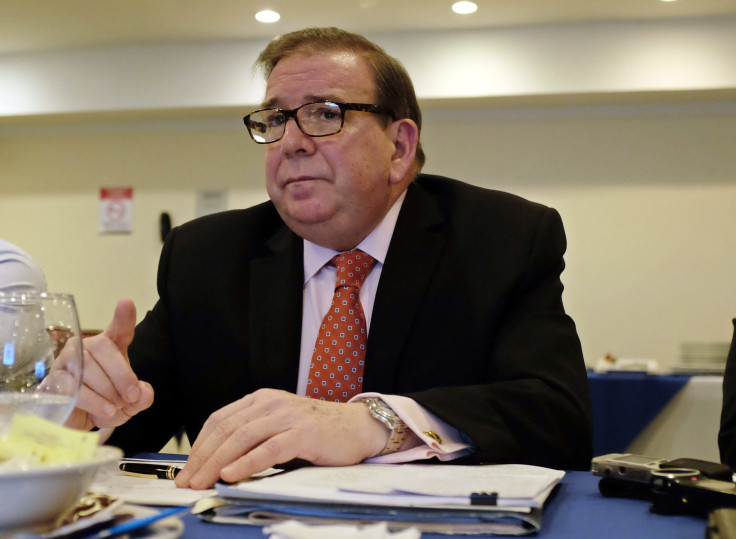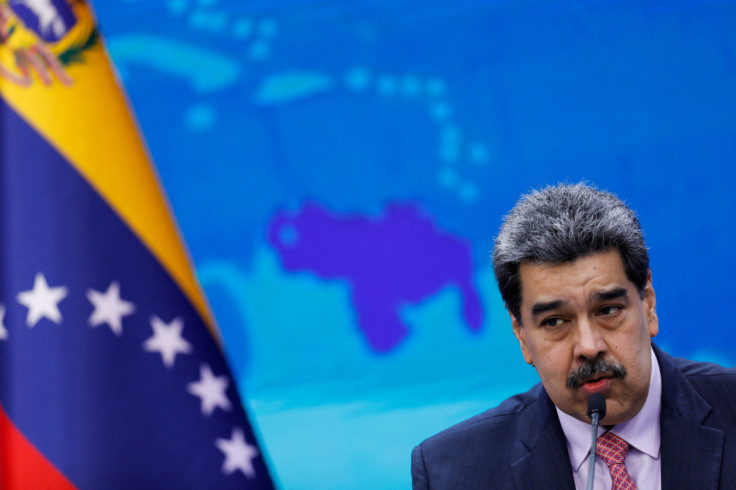
Medellín, Colombia / Caracas, Venezuela -- Venezuelans will head to the polls on Sunday in what are set to be the country's most consequential elections of the past years, given the chance that they could end decades of chavismo's grip on power.
In that context, opposition candidate Edmundo González Urrutia, answered a series of questions from The Latin Times through written messages. He said that, if elected, his administration would "respect all political forces" and would be "a government for everyone."
His comments, issued on Friday, pose a stark contrast to that of his opponent, President Nicolás Maduro, who on July 17 warned that Venezuela could face a "bloodbath" and "civil war" if his government was not re-elected.
The statement even "shocked" Brazilian President Luiz Inácio Lula da Silva, historically reluctant to condemn the government's human rights abuses. "I was shocked by Maduro's statement saying that if he loses the elections, there will be a bloodbath. Whoever loses an election takes a bath in votes. Maduro needs to learn that when you win, you stay; when you lose, you leave," Lula said.
Maduro's son, Nicolás Maduro Guerra, walked back his father's statements, telling El Pais, "If Edmundo González wins, we will become the opposition."
Concerns for candidates' security have persisted since Maduro announced he would hold elections and run for a third term in March of this year.
Multiple human rights groups have accused Maduro's government of political repression and violence against opponents. Days before the elections, opposition leader María Corina Machado's security chief was detained, joining a long list of opposition members who have been apprehended by law enforcement over the past months.

The opposition has also raised alarm bells that independent election observers are being blocked from monitoring elections, and foreign lawmakers and political actors have been prevented from entering the country to observe the process.
The country's National Election Council (CNE), which oversees the elections and is led by allies of the current government, has faced criticism for unfair practices.
The body banned Machado, who last year won the primary's opposition, from running in the elections. Her stand-in candidate, Corina Yoris, was also banned. And Venezuelans living abroad have complained about not being allowed to register for absentee voting. The United Nations High Commissioner for Refugees (UNHCR) estimates that more than 7 million Venezuelans have fled the country in the past decade, but only a few tens of thousands have been cleared to vote.
González Urrutia told The Latin Times that his campaign has been working both on the ground in Venezuela and with the international community to help defend the legitimacy of the election. "We are not naive and we prepare for any scenario and we continue to work attentively to achieve victory on July 28," he said.
"We aspire to elections that allow the Venezuelan people to express themselves with the guarantees established by the constitution, that the votes are counted clearly, that they are recognized and respected," he said.
How Maduro's government -- or the opposition for that matter -- may react to a loss remains unclear. Maduro and his allies face a number of investigations related to drug trafficking and human rights abuses in the U.S. and the International Criminal Court (ICC).
"The reality is that Maduro is not going to give up power if he perceives that there's any real risk that he could end up in a jail cell in Miami," Geoff Ramsey, a Venezuela expert at the Atlantic Council, told John Otis with NPR.
A memo the Washington-based think tank sent to President Biden said that should protests erupt following a disputed result, Maduro's security forces may be "reluctant to engage in massive repression" given the ongoing human rights abuse investigations.
It's also not known how the international community will react should fraud be detected in elections.
U.S. Senator Marco Rubio, the Republican from Florida, said on Friday that "the U.S. and its democratic partners must make clear it will swiftly respond if this election is unjust and undermined."
The Atlantic Council recommended a more measured approach in its memo to the president, saying the U.S. should focus on election data from credible, independent observers; explore opportunities for sanctions relief to help encourage negotiations between the two parties; and promote a regional response from countries like Colombia and Brazil.
"The goal should be balanced policies that address these dynamics, acknowledge Venezuela's role in global energy markets, and prioritize the humanitarian needs and human rights of the Venezuelan people," the memo stated.
Despite fears of political repression, the atmosphere on Thursday at the closing campaign rallies for Maduro and González Urrutia were mostly upbeat and hopeful.
At a Maduro rally in the west of Caracas, Diego, who donned a "gallo pinto" (fighting cock) hat meant to symbolize Maduro, told The Latin Times that " the elections are coming along calmly. On Sunday, everything will be calm and we will wait for the results." But quickly followed with, "What worries me most about the opposition is its violent nature."
On the other side of town, in the upscale Las Mercedes neighborhood, Edgar and his girlfriend Rafina awaited the arrival of Machado and González Urrutia at the opposition's final rally before campaigning closed.
"Maduro is the only one who can guarantee peace," Edgar said.
© 2025 Latin Times. All rights reserved. Do not reproduce without permission.





